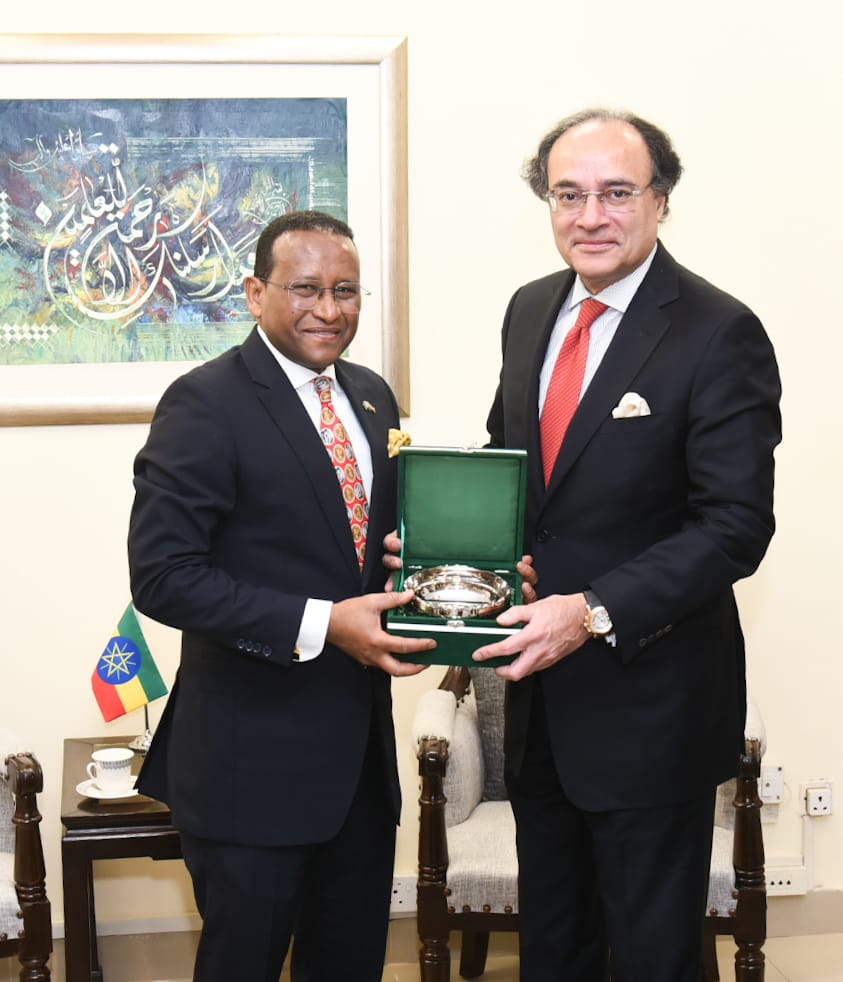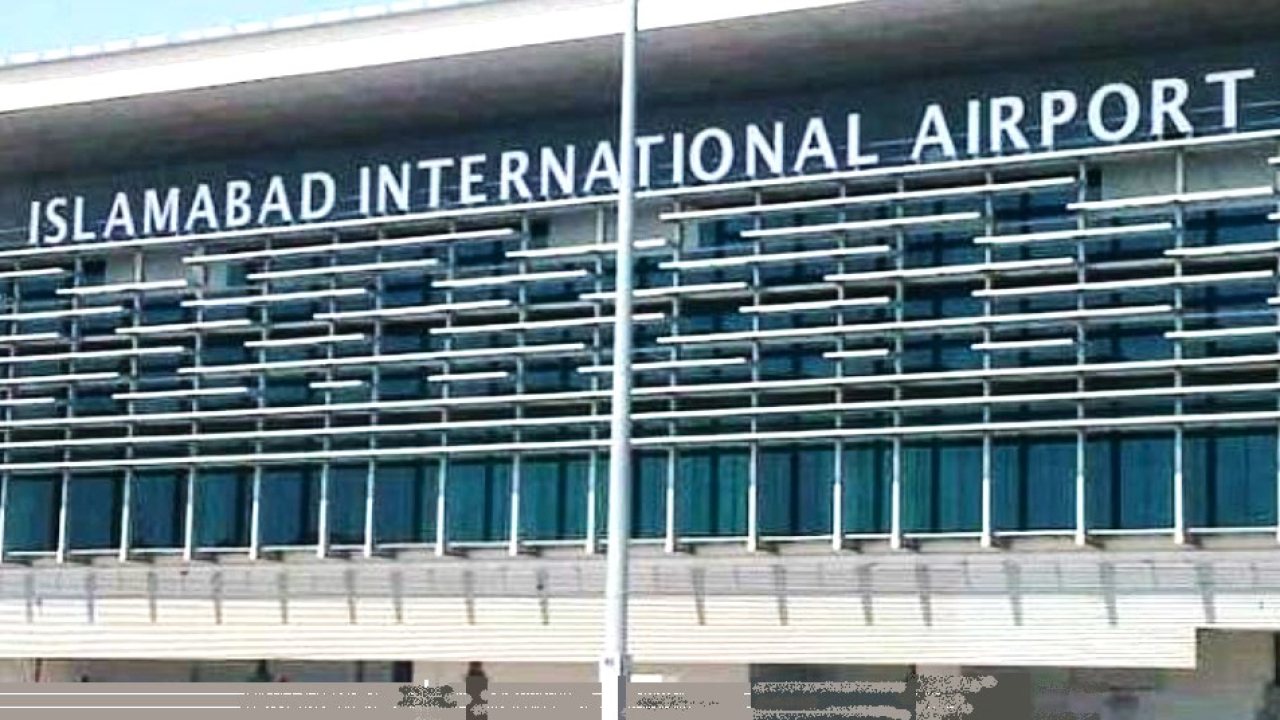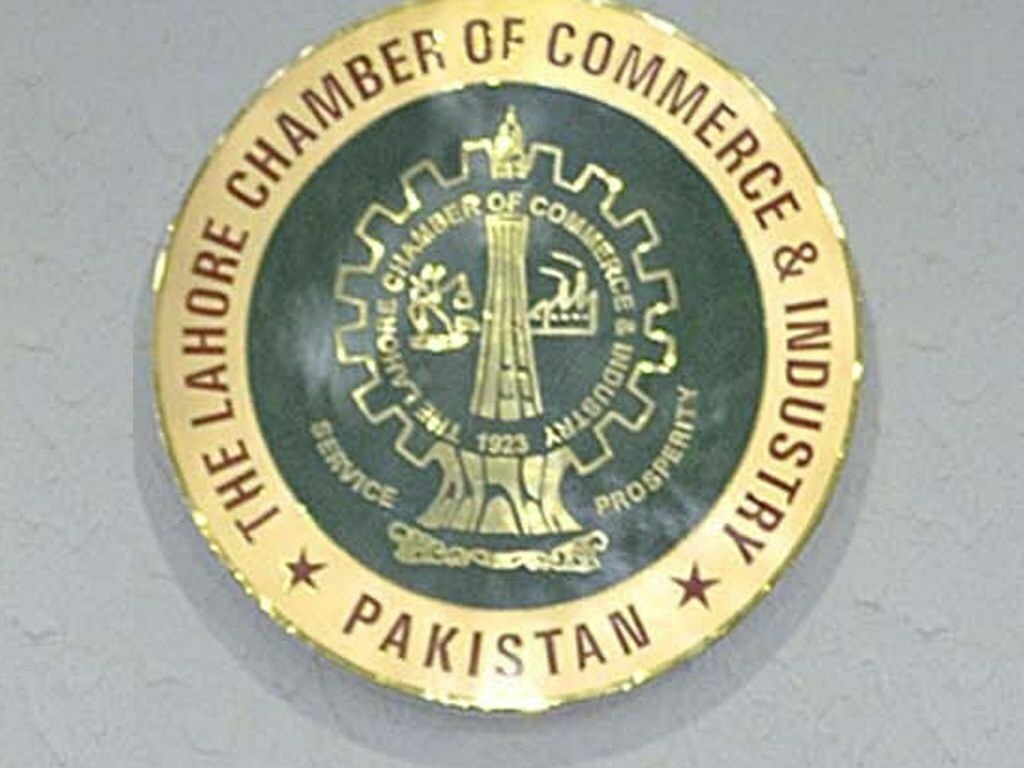Mohsin Siddiqui (Chief Reporter)
The Ambassador of the Federal Democratic Republic of Ethiopia to Pakistan, H.E. Mr. Jemal Beker Abdula, met with Pakistan’s Minister for Finance & Revenue, Senator Muhammad Aurangzeb, at the Finance Division today. The meeting was a platform for both countries to share their experiences with economic reforms and explore opportunities for enhanced cooperation.
The Finance Minister warmly welcomed Ambassador Abdula, providing an overview of the economic reforms currently underway in Pakistan. These reforms are part of a broader home-grown agenda aimed at achieving economic stability and sustainability. Senator Aurangzeb highlighted several recent positive developments, including improvements in foreign exchange reserves, state-owned enterprise (SOE) reforms, and advancements in the power sector. He noted that international rating agencies have begun to acknowledge the stability resulting from the government’s economic decisions. Reports from agencies such as Fitch have confirmed the improvement in Pakistan’s economic outlook, which now aims at achieving long-term sustainability.
Ambassador Abdula praised Pakistan’s macroeconomic stability and shared insights on Ethiopia’s similar approach to home-grown economic reforms. He detailed various initiatives inspired by Pakistan’s experience, particularly in stabilizing its currency and fostering economic resilience. The discussion also encompassed the potential for enhanced bilateral trade and financial collaborations to foster mutual prosperity. Ambassador Abdula proposed the exploration of educational cooperation, specifically the promotion of student exchange and scholarship programs. This initiative aims at providing Ethiopian students with opportunities to study in Pakistan, fostering educational and cultural ties between the two nations.
Senator Muhammad Aurangzeb agreed on the importance of fostering deeper ties between the two nations and welcomed the proposed collaborations. Both parties acknowledged the mutual benefits that can be derived from such partnerships and expressed commitment to further strengthening the bilateral relationship.
Ambassador Abdula emphasized that Ethiopia, like Pakistan, is focused on implementing home-grown economic reforms to stabilize and grow its economy. These reforms are tailored to the unique economic conditions of Ethiopia, drawing lessons from Pakistan’s successful strategies. The ambassador highlighted Ethiopia’s efforts to stabilize its currency, improve foreign exchange reserves, and undertake significant infrastructure projects to boost economic growth.
The meeting also touched upon the broader scope of trade relations between Ethiopia and Pakistan. Both nations recognized the vast potential for increasing bilateral trade, which could significantly benefit their economies. Ambassador Abdula pointed out that Ethiopia is keen to learn from Pakistan’s experience in various sectors, including agriculture, textiles, and technology. He suggested the establishment of joint ventures and business delegations to explore new avenues for trade and investment.
Educational cooperation was a significant highlight of the discussion. Ambassador Abdula proposed initiatives to promote student exchange and scholarship programs, allowing Ethiopian students to study in Pakistan. This initiative aims to enhance educational and cultural ties, providing students with opportunities to gain diverse perspectives and contribute to their respective countries’ development. Senator Aurangzeb welcomed this proposal, highlighting Pakistan’s robust educational infrastructure and its potential to support such exchanges.
The dialogue between Ambassador Abdula and Senator Aurangzeb underscored the importance of mutual understanding and collaboration. Both parties expressed their commitment to working closely to achieve common goals and address shared challenges. The meeting concluded on a positive note, with both sides agreeing to take concrete steps to enhance cooperation in various fields, including economics, trade, and education.




